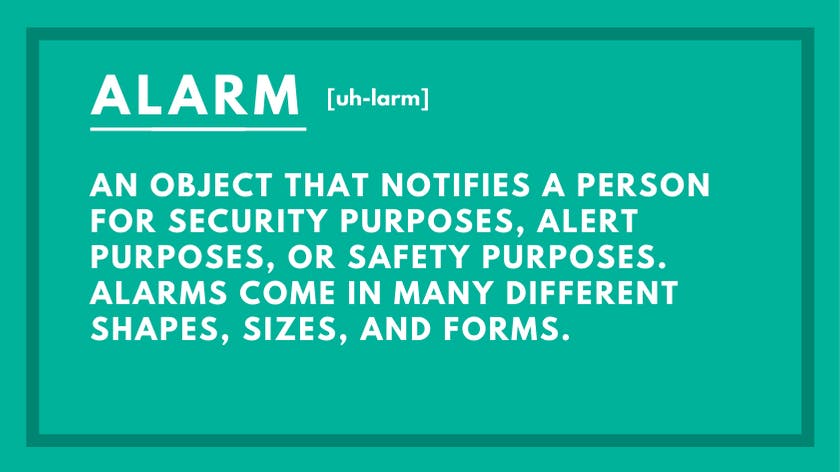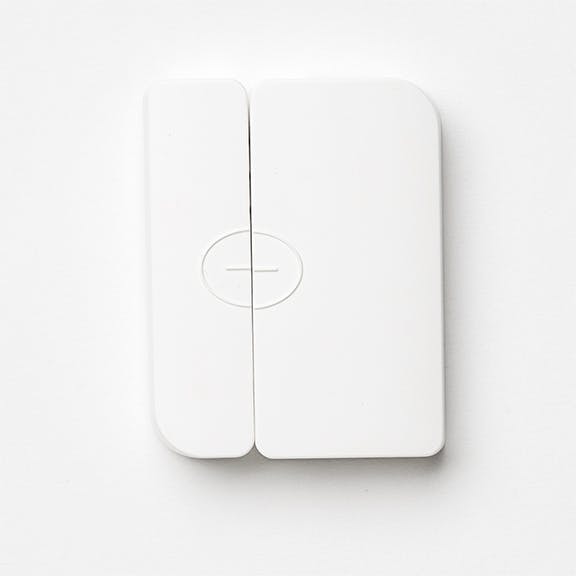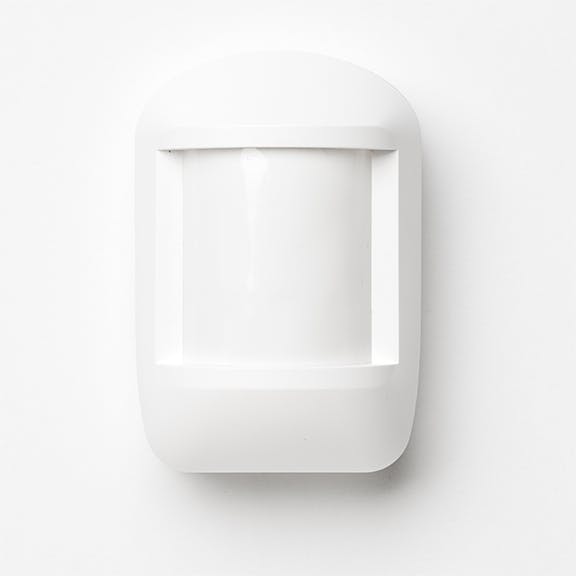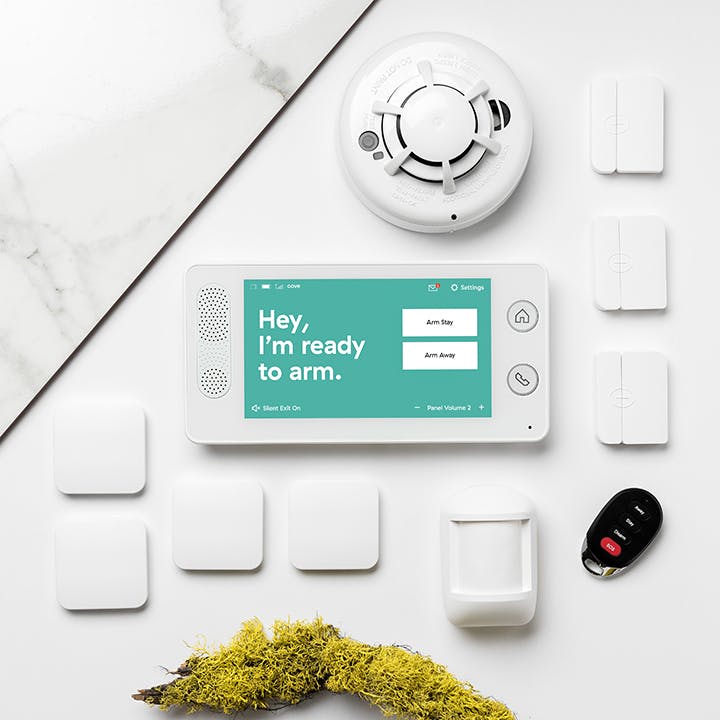
Alarm Definiton: an object that notifies a person for security purposes, alert purposes, or safety purposes. Alarms come in many different shapes, sizes, and forms. In this article, you will learn what counts as an alarm.
Alarms are used for a variety of reasons. Most of the time, alarms act as sirens to alert the surrounding people that something is wrong. We see this in metal detectors, motion sensors, cars, and home security systems. With so many types of alarms, what counts as an alarm? In short, it depends on the “genre” of alarm. Within each genre, the alarm definition will change. We’ve separated alarms into three main categories: security, alerts, and safety.

Alarms for Security
Security alarms are used for home security alarms, car alarms, and door alarms. These alarms are meant to be used as protection. The purpose of a security alarm is to trigger a warning sound. This prevents burglars, intruders, and thieves from venturing too close to an object or property line. Alarms in this category include, but are not limited to, door sensors, window alarms, motion sensor alarms, floodlights, and car alarms.
Door Sensors
Door sensors are a popular alarm used in home security. A report done by The University of North Carolina determined that most burglars, more than 50 percent, break in through the front door to gain access to the inside of a house. This stresses the importance of alarm management at your front door. A door alarm is a small device that is secured to the door of a house. When the device is secured, it can monitor the movement of the door. When the door is opened, the alarm is triggered. This type of alarm lets off a loud siren noise to scare off an intruder who opens the door (the door sensor does not act as a smart lock).
Often, door sensors can be connected to a smartphone and send mobile notifications. The notification will appear as a message to your phone. When you receive a notification on your phone from a door sensor, you will know that the door has been opened. If you are not expecting someone to be entering your house, the door was likely opened by an unwanted intruder. Because of the way a door sensor is installed, false alarms are unlikely.

Window Alarms
Window alarms come in two varieties: glass break sensors and window sensors. Window alarms are effective in stopping burglars from breaking into your house through the window. Studies have shown that 23 percent of burglars will use a first-floor window to enter a house.
Window alarms work on all windows. As long as the alarm system is armed, the alarm will trigger as soon as the window is opened. When the alarm is triggered, it lets off a loud sound that is meant to scare away the intruder. Similar to the door sensor, window alarms can also be paired with your phone through the control panel to give you a better idea of what is happening in your home.

Motion Sensor Alarms
Motion sensor alarms use passive infrared technology to trigger a siren that is meant to issue a warning to potential intruders. Passive infrared sensors (PIR) track infrared radiation in the form of heat that is emitted from all living creatures. The sensors can detect the size of the object and determine whether the moving thing is a cat, dog, or person. It processes the data to know the difference between a moving tree branch and a moving person. When the sensor detects a person moving across the frame, the alarm is triggered. PIR sensors can be placed indoors or outdoors and act as the perfect burglar alarm.

Floodlights
Although most alarms are audible alarms, a floodlight alarm is not. The floodlight acts as a visual alarm. The floodlight uses PIR motion detection for better monitoring. When a person comes within 40 feet of the sensor, the sensor floods the area with bright light. For an intruder who is approaching the house at night, the sudden burst of light will spike their anxiety and potentially activate their flight or fight response.
Floodlights are a standard monitoring tool commonly used in alarm systems. They are the preferred application for nighttime security. Floodlights help to prevent intruders from getting too close to the house and ensure that your home is protected long after the sun retreats.

Car Alarms
Car alarms are priority alarms, meaning that they are automatically manufactured to be a part of the car’s security system. The alarms take the form of an automatic safety tool that prevents the car from being stolen. Car alarms are triggered when a person tries to jostle the handle of the car, when the car is hit while parked, or when the car door is opened while the car is still locked. Car alarms prevent car thieves from stealing a car quietly. The severity and sensitivity of the car alarm can be modified and changed depending on what you need in your car alarm.

Alarms to Alert
Not every alarm is meant for security. Many alarms are created as alerts. For example, store entrance alarms act more like an alarm notification to alert the store employees that someone has entered the store. These types of alarms are often installed at the door as motion sensors or alarm bells. They give off a subtle and soft noise when someone passes the threshold of the store’s entrance. This alarm signal isn’t meant to scare or to intimidate. It’s simply meant to alert.
Other types of alert alarms include bedtime reminders, alerts on your phone, and messages. The definition of alarm can apply to a wide number of objects in this section. As long as you can set the alarm, it counts as an alarm for this section. The point of an alarm alert is to signal to get your attention. There are few security or safety benefits that come from this type of alarm.

Alarms for Safety
The final category of alarm is an alarm for safety. These alarms include smoke detectors, flood sensors, and carbon monoxide detectors. These sensors indicate whether or not you are safe in the area. If the sensor is triggered, you will know that you are unsafe. These types of alarms should be installed in every home to ensure that you and your family are protected and safe.
Alarms can be used for a variety of things. Alarms can be as simple as setting a timer for the oven. They can also be as complicated as a home security alarm system where each device is connected and intertwined. That being said, there isn’t one definition for alarm. Alarms are used in every area of our lives.
If you’re looking for alarms check out Cove’s selection here.
